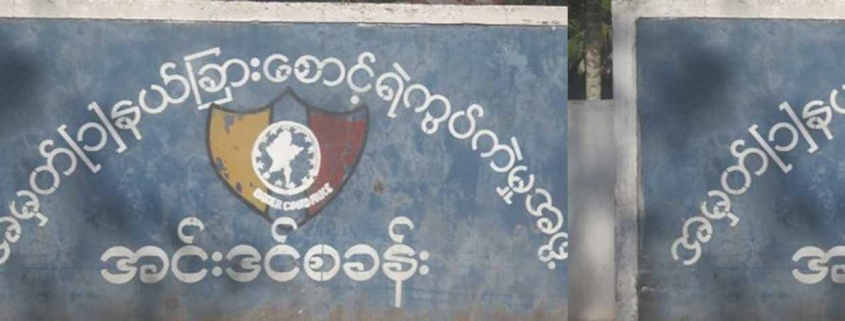7 Tatmadaw Soldiers to Be Held Accountable for Killing of 10 Muslims in Rakhine
By HTET NAING ZAW 13 February 2018
NAYPYITAW — Sixteen people including seven Tatmadaw soldiers will be held accountable for the killing of 10 Muslim residents of Inn Din village in Rakhine State’s Maungdaw, according to the President’s Office.
“The investigation found that four military officers and three other ranks of Tatmadaw soldiers, three policemen and six villagers were involved in the killing,” U Zaw Htay, director-general of the President’s Office told The Irrawaddy.
The Tatmadaw, or Myanmar Army, said on Jan. 10 that villagers of Inn Din and security forces killed 10 Muslim villagers at the village’s graveyard on Sept. 2, 2017, and that it would take action against those involved in the killing.
The President’s Office has instructed the Home Affairs Ministry to take action against the three policemen and six villagers according to civil law, said U Zaw Htay. But it is not yet clear how the Tatmadaw will take action against the soldiers involved in the killing.
“The Tatmadaw has to abide by both the Defense Services Act and civil law,” said U Zaw Htay.
“Though they are service personnel, they should be tried at a civil court. This case is not simple. And I believe there were racial and religious motives. So, they should be tried at a civil court,” said director U Sein Win of the Myanmar Journalism Institute.
After two Reuters reporters who tried to investigate the deaths were arrested and detained by police on Dec. 12 in Yangon, the Tatmadaw launched an investigation into the killings, saying that it had received a tip from an anonymous source.
Meanwhile, Reuters featured the story Massacre in Myanmar on Feb. 8, alleging that security forces and Buddhist villagers of Inn Din killed Rohingya Muslims and torched their houses.
U Sein Win complained that international media did not report when Hindus and ethnic Mro people were killed in Rakhine State during the violence.
“Normally, the reporting of Reuters is independent. But when it comes to the Rohingya issue, its perspective is that the Rohingya are oppressed in Myanmar. So, its reports about Rakhine usually focus on what the government and Tatmadaw do [to the Rohingya],” said U Sein Win.
U Thiha Thway, a journalist based in Yangon, believes that there are connections between the Inn Din killing and the detention of the Reuters reporters. He said the case has hampered the right to information in the democratization process.
“While we are advocating the new government and Parliament for an increased right to information, the concept of “security” is hampering this right,” he said.
There was no investigation into the killings of Hindu and Mro people during the violence between August 5 and Sept. 15, and the media has been called into question, said U Zaw Htay.
“I don’t mean all of the media, but some media organizations are very keen to investigate such cases [the killing of Rohingya Muslims]. Meanwhile, there are other cases [the killing of Hindus and Mro]that were not reported on. [Myanmar] people have the perception that [the international media]has an agenda [to highlight the plight of the Rohingya],” said U Zaw Htay.
While some local journalists have criticized the repetitive use of ‘Buddhists’ by Reuters in its story, U Sein Win said he thinks Reuters used the word to highlight that the conflict is not because of disputes over the terminology ‘Rohingya,’ but because of sectarian strife between Buddhists and Muslims.
The Reuters story concludes with this quote by a Buddhist elder of Inn Din village when talking of the killings: “I want to be transparent on this case. I don’t want it to happen like that in future.”
“The last quote is strong. He said he revealed the case because he didn’t want similar cases to happen in the future. It indicates that he can’t accept such things although they have conflicts with Islam. Though he doesn’t like the Rohingya, he can’t accept inhumane acts,” said U Sein Win.



